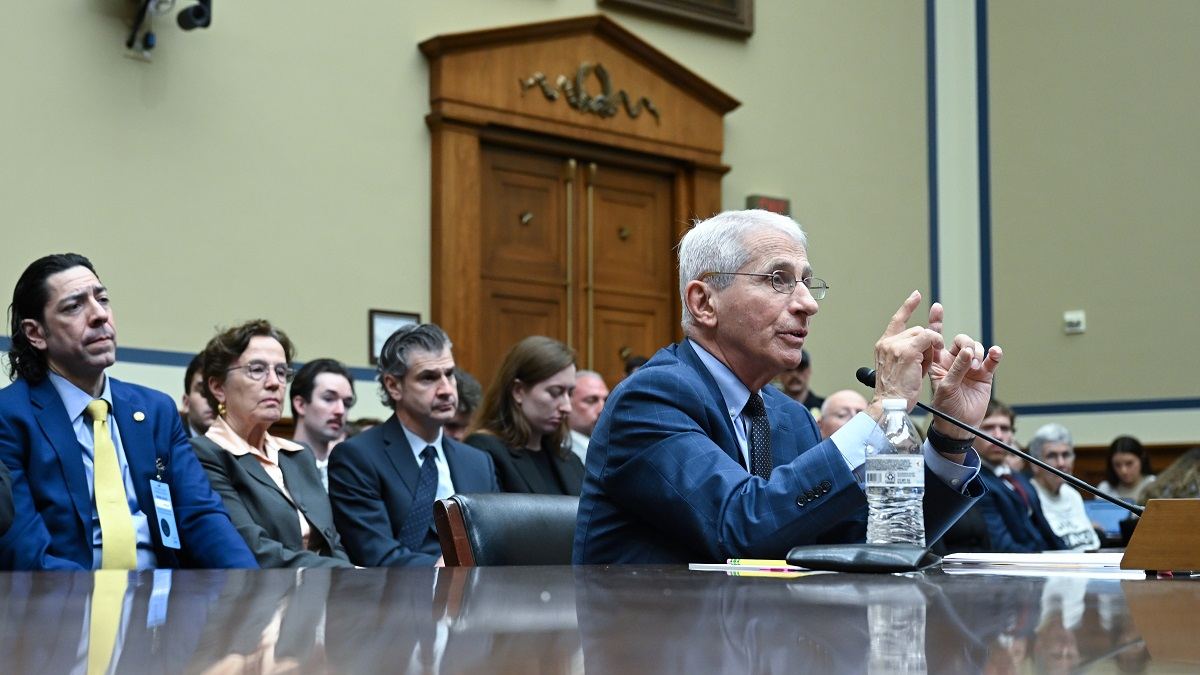
Anthony S. Fauci, former director of the National Institute of Allergy and Infectious Diseases, testifies June 3 before a congressional committee investigating the coronavirus response.
17:29 JST, August 25, 2024
Anthony S. Fauci was hospitalized with West Nile virus this month, according to a spokesperson for the nation’s former top infectious-disease official.
Fauci, 83, was the director of the National Institute of Allergy and Infectious Diseases for nearly four decades before he retired in 2022. He achieved unprecedented fame while enduring withering political attacks as the face of the coronavirus pandemic response under Presidents Donald Trump and Joe Biden.
Fauci was hospitalized for six days before he returned home from the hospital this week.
“Tony Fauci has been hospitalized with a case of West Nile virus. He is now home and is recovering. A full recovery is expected,” the spokesperson said.
A person familiar with Fauci, who spoke on the condition of anonymity to describe the circumstances, said the former director does not know how he contracted the virus.
West Nile virus is a mosquito-borne illness that can cause fever, body aches, diarrhea and rash, according to the Centers for Disease Control and Prevention. There are no vaccines or treatments for the virus.
Even though he left government nearly two years ago, Fauci has continued to face fierce political attacks from congressional Republicans for his role in the nation’s coronavirus response.
In June, he testified before a House panel investigating the response, with Republican lawmakers accusing him of orchestrating a coverup of the virus’s origins, which Fauci fiercely rejected as “simply preposterous.” The infectious-disease expert said Republicans have distorted emails between himself and other scientists as they discussed whether a laboratory leak of the coronavirus was possible.
After leaving government, Fauci joined the faculty at Georgetown University, where he serves as a distinguished professor in the School of Medicine. He also holds a position in the university’s McCourt School of Public Policy.
This summer, Fauci released a memoir called “On Call” that recounted his long career in public health and medicine, including the leading role he played in responding to the nation’s AIDS epidemic in the 1980s and 1990s, and his unlikely rise to fame and political notoriety as the face of the coronavirus response under President Donald Trump.
Top Articles in News Services
-

Survey Shows False Election Info Perceived as True
-

Hong Kong Ex-Publisher Jimmy Lai’s Sentence Raises International Outcry as China Defends It
-

Japan’s Nikkei Stock Average Touches 58,000 as Yen, Jgbs Rally on Election Fallout (UPDATE 1)
-

Japan’s Nikkei Stock Average Falls as US-Iran Tensions Unsettle Investors (UPDATE 1)
-

Trump Names Former Federal Reserve Governor Warsh as the Next Fed Chair, Replacing Powell
JN ACCESS RANKING
-

Producer Behind Pop Group XG Arrested for Cocaine Possession
-

Japan PM Takaichi’s Cabinet Resigns en Masse
-

Japan Institute to Use Domestic Commercial Optical Lattice Clock to Set Japan Standard Time
-

Man Infected with Measles Reportedly Dined at Restaurant in Tokyo Station
-

Israeli Ambassador to Japan Speaks about Japan’s Role in the Reconstruction of Gaza






















